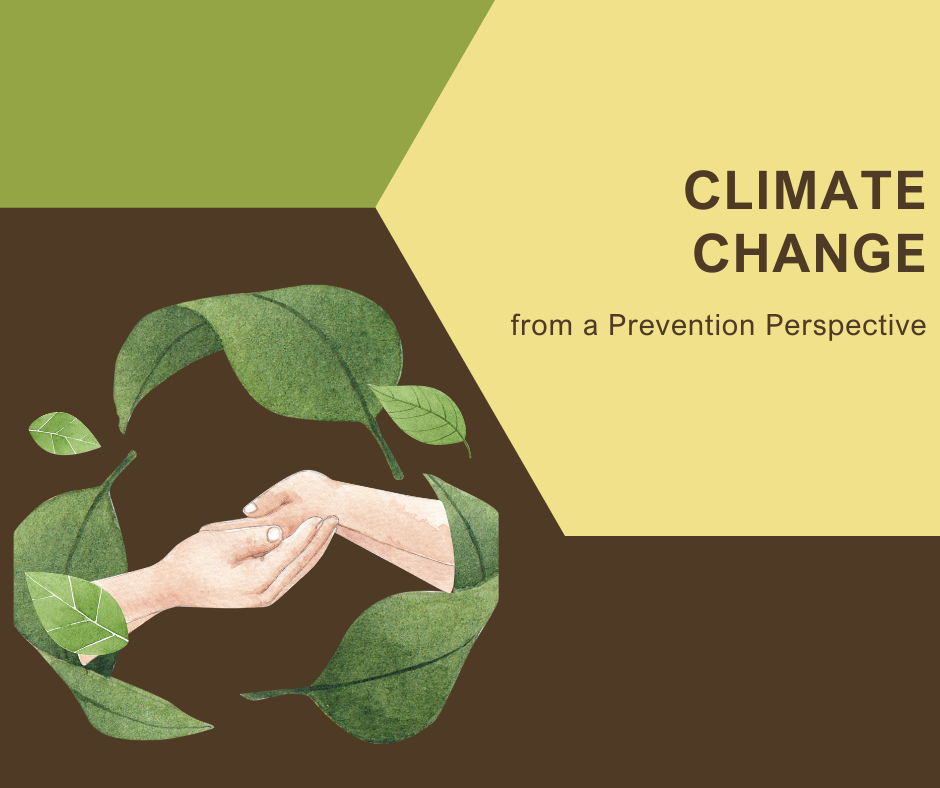Join the Implementation Science work group for a webinar that addresses a common overarching question in prevention: "how can an evidence-based intervention (EBI) be delivered with fidelity to its scientific components, while also responding effectively to changing real-word conditions?” Mindful of the public health adage, “one size doesn’t fit all,” how can intervention delivery staff respond effectively to these conflicting demands? This session will summarize major challenges and their resolution as illustrated by the “Fidelity-Adaptation Dilemma.” A general prevention science goal is to effectively disseminate, adopt, implement, improve, and sustain relevant EBIs to benefit residents from a local community. Strategies for addressing this dilemma across diverse real-world settings will be discussed.
This webinar is designed to compliment the Implementation Science Work Group's four-module course on selecting evidence-based programs and interventions, available on HealthEKnowledge. It is recommended that participants are familiar with the contents of that course prior to attending this webinar, but not required.
Slides: Download
READ MOREDeveloped by the PTTC Evidence-Based Interventions Workgroup, this one page (front and back) handout serves as a quick guide for adapting evidence-based interventions including why, how, and where to adapt and things to consider.
READ MORE
Webinar: Why Use Evidence and Where to Find It: Blueprints for Healthy Youth Development
DATE: May 27, 2020
DESCRIPTION:
Many prevention practitioners struggle to identify and select appropriate evidence-based interventions to prevent substance misuse in their communities. To adequately address a problem it is important to understand why evidence is important, how to use it, and where you can go to find it. This webinar will discuss the importance of employing evidence and prevention science in our substance misuse prevention work. It will also highlight the Blueprints for Healthy Youth registry to assist you with locating evidence-based substance misuse prevention interventions that are appropriate for your community.
PRESENTER:
Karl G. Hill, PhD, is the Principal Investigator of the Blueprints for Healthy Youth Development prevention registry, and directs the Program on Problem Behavior and Positive Youth Development at the University of Colorado Boulder. Over the last thirty years he has focused on two key questions: What are optimal family, peer, school and community environments that encourage healthy youth and adult development? And How do we work with communities to make this happen? In addition, he has focused on developing and testing interventions to shape these outcomes, and on working with communities to improve youth development and to break intergenerational cycles of problem behavior.
WEBINAR SLIDES:
Download Slides - Why Use Evidence and Where to Find It: Blueprints for Healthy Youth Development (PDF)
OTHER RESOURCES:
Strategies to Boost Retention in Intervention Follow-Ups
Reference: Hill KG, Woodward D, Woelfel T, Hawkins JD, Green S. Planning for Long-Term Follow-Up: Strategies Learned from Longitudinal Studies. Prev Sci. 2016;17(7):806‐818. doi:10.1007/s11121-015-0610-7.
READ MOREPrevention leaders are dedicated to improving the health of their communities through effective programs and policies to reduce substance misuse and its related consequences. Perhaps the most critical decisions prevention staff weigh are what set of programs and policies to implement, typically with limited resources. In the past, many prevention practitioners relied on a single registry to find potential evidence-based programs and policies that is no longer available. The good news is many other options exist! This document summarizes many available federal registries and online databases where prevention practitioners can begin their search for the “best fit” evidence-based prevention program, policy, or practice.
Download the Guide to Online Registries for Substance Misuse Prevention Evidence-based Programs and Practices Handout (pdf)
READ MOREProject planning is a multi-faceted and dynamic step in the prevention implementation process, one that can set the stage for continued success and sustainability. Without a robust and agile plan, implementation and sustainability can be negatively impacted, potentially putting a project at risk. This important step goes beyond using the data gathered from community, and ethical analysis of that data. From including a diverse set of voices and experiences, to balancing funder expectations and community defined outcomes, project planning requires a critical lens to ensure ethical practices and equity are embedded throughout. In this session of the series, we will explore various examples of practical planning processes and practices which can have tremendous positive implications for the communities we serve.
Webinar Objectives
After attending, each participant will be able to:
Understand the value of purposefully seeking and leveraging a diverse set of experiences, types of expertise and community defined outcomes in the planning process.
Explore examples of successful projects using an equity lens.
Learn the difference between representation and inclusion in ethical and equitable planning.
READ MOREThis webinar describes the importance of environmental strategies and how they differ from individual-focused prevention programs. Environmental strategies are prevention interventions that address factors related to the context within which individuals make decisions about initiating and continuing substance use. Researchers have identified numerous risk and protective factors for engaging in substance use, which are often categorized by a socio-ecological model. Environmental strategies primarily seek to address factors found at the community and society levels of the model. The webinar discusses the different types of environmental strategies and provides examples of evidence-based strategies. The webinar depicts walk-through examples of collaborative partners needed to implement environmental strategies and the pre-implementation work that preventionists will need to complete.
READ MOREWhile evidence-based approaches to prevention are being strongly supported by policy makers of late, it isn’t always clear what this means and how it might relate to your own work in the field. This webinar is an overview of prevention science and how it has brought about the development not only of effective prevention programs but also to the planning and implementation of these. Evidence-based programs have been shown through rigorous research to be successful at reducing risky and unhealthy behaviors across the life span. This webinar describes how the science contributes to our understanding of the etiology and prevention of substance use and related behaviors, examples of some of the most effective interventions and policies.
READ MOREAre you wondering where to find information on evidence-based programs, practices, and policies for substance misuse prevention? Join this webinar to learn how to conduct successful searches for substance misuse prevention interventions that meet the needs of your community. Several online registries will be explored during the webinar, along with information on how to ensure the selection of a prevention intervention will meet your community’s needs.
Objectives:
Upon completion of this virtual learning experience, participants will be able to:
List the steps to selecting a prevention intervention that meets the needs of their community
Access at least five online registries for substance misuse prevention interventions
Use the Guide to Online Registries for Substance Misuse Prevention Evidence-based Programs and Practices as a tool in their strategic planning process
READ MOREThis webinar will provide specific tools for prevention practitioners in determining what behavior they are trying to change and why. The presentation will discuss fidelity of the use of innovations and how to adapt while ensuring the intended outcomes. An overview of available prevention registries will be covered with tools on how to utilize registries in your research question while ensuring the program is evidence based and fit to the population. There will be a discussion on things to consider when adapting to virtual platforms.
Objectives:
1. Participants will increase their understanding of implementation practice and science and its application in prevention science
2. Participants will increase their understanding of the importance of innovation fidelity in prevention science
3. Participants will increase their knowledge of the importance of research and evaluation to achieve success in their prevention programs
READ MOREThis webinar will provide specific tools for prevention practitioners in determining what behavior they are trying to change and why. The presentation will discuss fidelity of the use of innovations and how to adapt while ensuring the intended outcomes. An overview of available prevention registries will be covered with tools on how to utilize registries in your research question while ensuring the program is evidence based and fit to the population. There will be a discussion on things to consider when adapting to virtual platforms.
Objectives:
1. Participants will increase their understanding of implementation practice and science and its application in prevention science
2. Participants will increase their understanding of the importance of innovation fidelity in prevention science
3. Participants will increase their knowledge of the importance of research and evaluation to achieve success in their prevention programs
READ MOREWhile evidence-based approaches are highly encouraged in the prevention field, it is very important to make sure strategies you select have both conceptual and practical fit, aligning with the priorities, risk and protective factors, and local issues in your community. Additionally, reviewing and weighing the evidence of effectiveness of proposed strategies gives prevention practitioners scientific support for strategy selection in a comprehensive prevention plan. This webinar will provide an 1) overview of strategic fit and its components, providing a step-by-step process of determining best fit for strategy selection; 2) describe how selecting best fit strategies can be adapted to current conditions with COVID-19; and 3) provide the opportunity to interact with fellow participants to explore the application of these strategic fit components into the work of prevention practitioners. Following the webinar, participants will have the opportunity to register for a learning lab where they will breakout into small work groups to discuss these concepts and how they are implemented locally. This is an opportunity to connect with other prevention practitioners nationally and share ideas and experiences in aligning priorities, selecting strategies using strategic fit, considering the context in which you do prevention and the evidence available.
Objectives
Upon completion of this virtual learning experience, participants will be able to:
1. Define conceptual fit and understand the necessity for aligning program design with community needs.
2. Define practical fit and identify opportunities for program adaptations to improve program outcomes.
3. Identify data collection opportunities to determine program or practice effectiveness.
4. Describe the effects of COVID-19 and social distancing on the implementation of evidence-based prevention practice.
Download Presentation Slides
READ MORE


